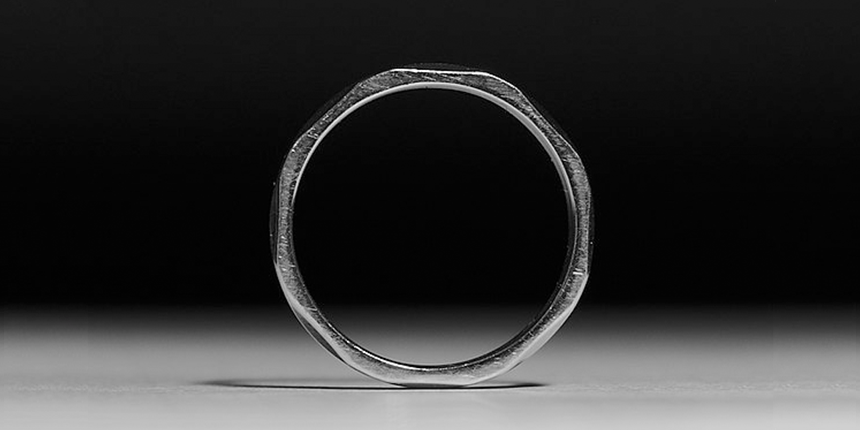

Engineers Canada has offered its support to a group of engineers and engineering students, faculty, university administrators, alumni, and iron ring wardens who are calling for the Iron Ring Ceremony to be ‘retooled’ in ways that reflect contemporary engineering responsibilities and values.
Engineers Canada, as well as some of the provincial and territorial engineering regulators, are listed as supporting signatories on a letter that the group has sent to the Corporation of the Seven Wardens, the organization that administers the ceremony, formally titled The Ritual of the Calling of the Engineer.
At the June 2022 Canadian Engineering Education Association Conference, a roundtable discussion took place on the Iron Ring Ceremony and Rudyard Kipling’s prominence within it. This discussion led to a 10-minute address at the conference’s closing keynote, during which attendees from across the country stood in support of change. Since the close of the conference, the group has continued to advocate for changes to the Iron Ring Ceremony and to broader engineering culture, and they have continued to receive messages of support.
In their letter to the Seven Wardens, the group acknowledges that the iron ring is a valued symbol for many engineers and that the Iron Ring Ceremony has been an important rite of passage for engineering graduates. However, the group identifies three concerns that they have with the ceremony, noting that this positive and affirming experience is increasingly not the reality for everyone.
First, the ceremony does not grant true agency to engineers and therefore fails to embody a comprehensive understanding of engineering ethics. The letter’s authors argue that the current ceremony implicitly restricts the practice of engineering to the types of work that were prevalent when the ceremony was first written, leaving out many forms of current engineering practice. For example, the ceremony fails to mention engineers’ roles in systemic environmental or social issues, nor the importance of building and maintaining trust with communities. It grants limited agency to engineers, implying that it is not an engineer’s responsibility to consider anything beyond the tasks that they have been assigned. The current ceremony, the letter argues, does not live up to expectations that engineers be critical thinkers and contribute to the high-level decisions that direct engineering work, and or that they speak up when they have safety, wellness, environmental, or other concerns.
Second, a lack of clarity and transparency in the ceremony’s text and in the structures and processes of the Camps and the Corporation of the Seven Wardens is in opposition to ethical engineering practice. The letter argues that the text of the ceremony is archaic and at times difficult to understand. It also notes that the governance and the secrecy surrounding the ceremony—from participants being advised not to discuss the ceremony afterwards, to friends and families of participants not being allowed to attend unless they are obligated engineers themselves—and its governance, is antithetical to ethical engineering practice that is transparent and meant to serve the public.
Third, the ceremony itself is steeped in outdated and harmful worldviews, including colonialism, racism, and sexism. The current ceremony was written by noted imperialist Rudyard Kipling, and the letter notes that Canadian engineers have played significant roles in colonization. Changing the Iron Ring Ceremony is one way in which engineers can respond to the Truth and Reconciliation Commission’s Calls to Action. The ceremony also includes readings and symbolism that are inherently religious and/or patriarchal. This can make the ceremony unwelcoming for women and for those who do not share Christian beliefs.
In its letter, the group makes a series of recommendations that it is calling on the Corporation of the Seven Wardens to implement. First, they lay out a way to re-envision the Iron Ring Ceremony for the 21st Century. Second, they call on the Wardens to commit to accountability and transparency. And finally, they call on the Wardens to reduce imminent harm during the retooling process and lay out how this can done.
Read the full letter submitted to the Corporation of the Seven Wardens here.
In a November 2022 press release, the Corporation of the Seven Wardens announced that it had formed a Ritual Review Committee in early 2022. It states that the Committee’s initial work has been to solicit input and actively listen to newly obligated candidates, Camp volunteers and other engaged stakeholder communities. A formal case for change and guiding principles will be presented to the Corporation membership prior to the development of specific recommendations.
The group’s letter is not the first instance of calls for change to the Iron Ring Ceremony. For example, in response to concerns about the ceremony’s lack of inclusive practices and language, in 2020 Engineers Canada and the provincial and territorial engineering regulators called on the Corporation of the Seven Wardens to modernize its approach and to look at revising the governance structure and practices of the Corporation and its Camps.
Photo credit: "Steel Iron Ring" by Dllu is licensed under CC BY 4.0


